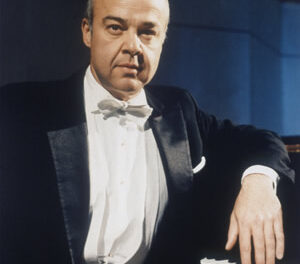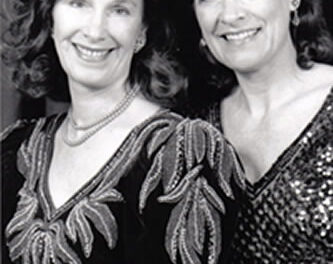We always look forward to the concerts in the series Encounters: with the Music of Our Time. Composer Steven Jaffe and the Duke Music Department always cook up a fascinating collection of late twentieth century works from world premieres to undiscovered masterpieces to-well-to stuff we’d prefer never to meet again. The important thing about these concerts is that all this music be given a hearing, or how else would we be able to refine our musical palates. Saturday’s program was a case in point, featuring three disparate composers: Brazilian guitarist and composer Arthur Kampela (b. 1960), Korean composer Unsuk Chin (b. 1961) and Jaffe himself (b. 1954).
Kampela, performing his own compositions, opened the program with three guitar studies, the first in a series of works designed to expand the musical capabilities of his instrument. These three compositions, Study 77, Ponteio, and Balada, were composed when Kampela was between 17 and 21. They blend the traditional rhythms, harmonies and fingerings of the guitar with experiments in diverse ways of strumming, plucking and striking it as a true percussion instrument. They are all heavily weighted in favor of the Hispanic guitar tradition: the rapid repeated notes on the high E string used as an ostinato to a lyric melody played on lower strings; rhythmic Flamenco strumming; and virtuosic plucking of complex melodies that extend to the entire range of the instrument (including harmonics). Interspersed were the percussive elements, using the body of the guitar as a drum and, at the climax of Balada, running a glass up the fingerboard in an eerie glissando.
Nice and light for an opener, but the real stuff came in the second half of the concert in Percussion Study I (1990) and II (1993). By this time, Kampela had worked out a unique technique for doing just about anything you can imagine with the guitar. He has devised a way to produce pitches and pluck with both hands at the same time, retune his instrument (scordatura) while playing, employ teaspoons and pencils to produce a whole new set of timbres, and, of course, complex combinations of drumming and tapping-all this still firmly grounded in the traditional language of the instrument. Oh yes, he’s a marvelous virtuoso with an engaging stage personality although André Segovia must have been spinning in his grave.
Unsuk Chin’s Akrostichon-Wortspiel: Seven scenes from fairy tales for soprano and ensemble (1991) ended the first half of the concert. Admitting that evaluating contemporary music on a single hearing is a kind of music critical hubris, this was an encounter we’d prefer not to repeat. First of all, any musical work that requires program notes to enable the audience to have even the faintest notion of what is going on lacks a kind of musical autonomy. For example, the seven tales each of whose titles heads one of the seven movements, are a chimera. The role of soprano Terry Rhodes was to sing a collection of syllables extracted from the tales which we were not supposed to be able to either hear distinctly or decipher. It appeared to us that the singer was meant to be part of the instrumental ensemble rather than a true soloist. And to top it all off, the fairy tales aren’t really distinct fairytales at all but rather excerpts from Carroll’s Alice Through the Looking Glass and Michael Ende’s The Neverending Story.
Somehow, the seven movements, which were each supposed to express a different situation or emotional state as described in the tales, might have succeeded simply on the differentiation of the various emotional states, but to truly understand the work, even on the purely emotive level, would take several more hearings. In addition, the instruments-flute, oboe, clarinet and bass clarinet, percussion, mandolin, harp, piano, violin, viola and bass-were tuned in such a way as to produce a microtonal modality. Pulling it all together was conductor Tonu Kalam. Despite the program note, however, Jaffe felt he had to announce after the intermission that the musicians were afraid the audience would think they were simply playing out of tune. In short, if you can’t tell the players without a scorecard, something’s lacking.
Stephen Jaffe’s new work Homage to the Breath, Instrumental and Vocal Meditations for Mezzo Soprano and Ten Players, closed the concert under the composer’s baton.. We found this to be one of Jaffe’s most lyrical and accessible works on first hearing. The opening movement, “running pulse”, was a pleasantly rhythmic introduction which gave many of the instruments solo roles. The second movement, “ostinato elegaico” was wonderfully effective, the slow ostinato provided by maracas and a single drum beat. Over this, the rest of the ensemble shared somber solos and small group passages. The final movement is a rondo set to a Buddhist breathing meditation. The mezzo soprano, Terry Rhodes, sang the seven verses, the musical refrain, while the ensemble provides a kind of instrumental response to each verse.
One addition to the Encounters project that might help listeners and reviewers is a final open rehearsal. While perhaps exposing some glitches and warts, hearing a performance in progress would permit a greater familiarity and understanding of new music.












